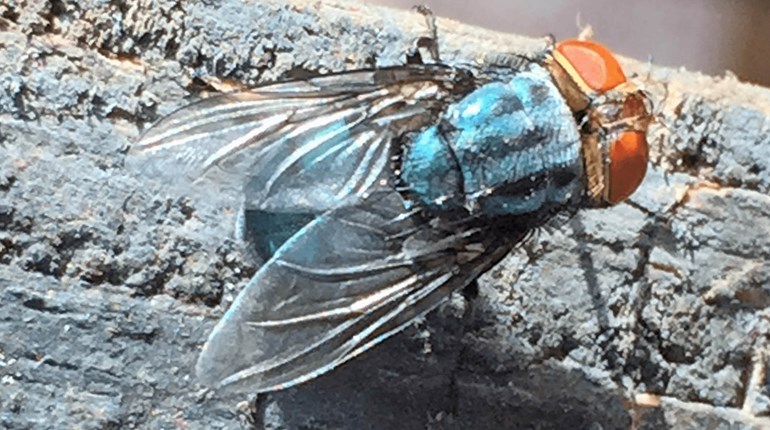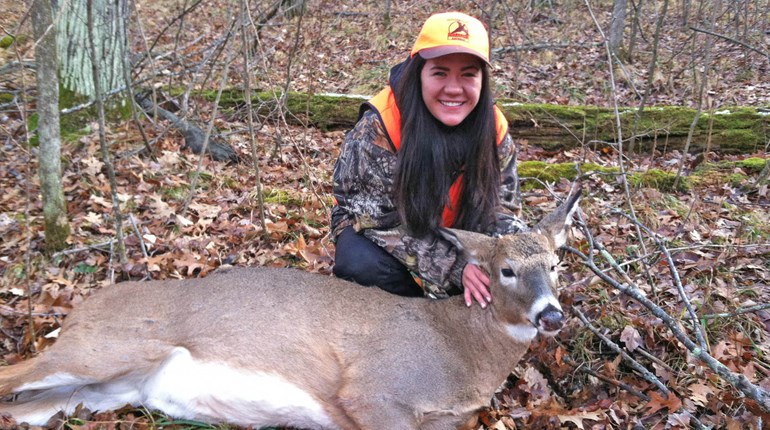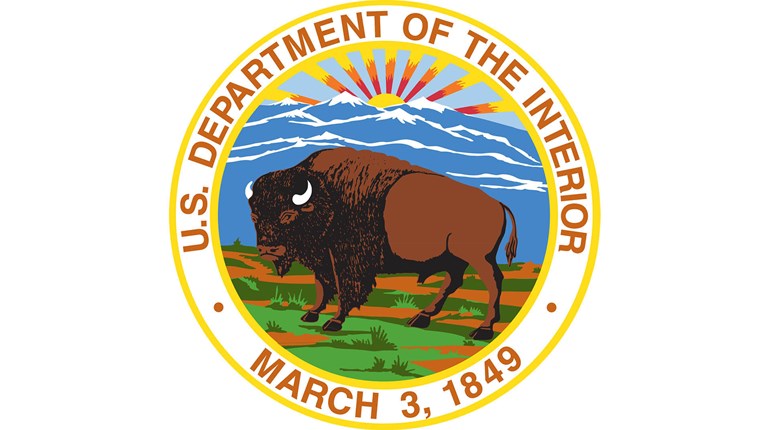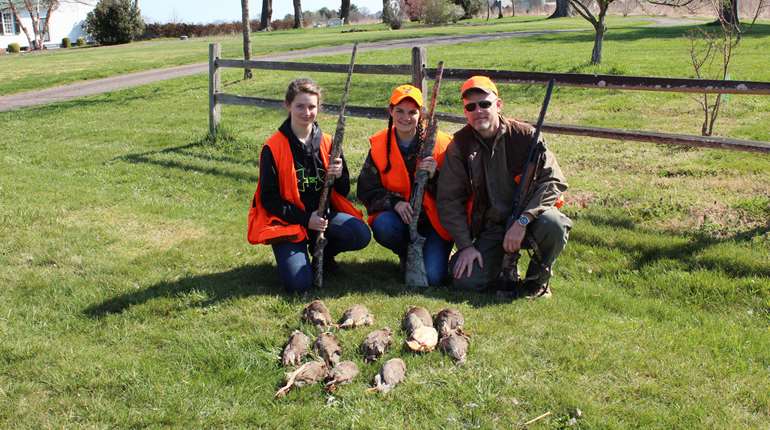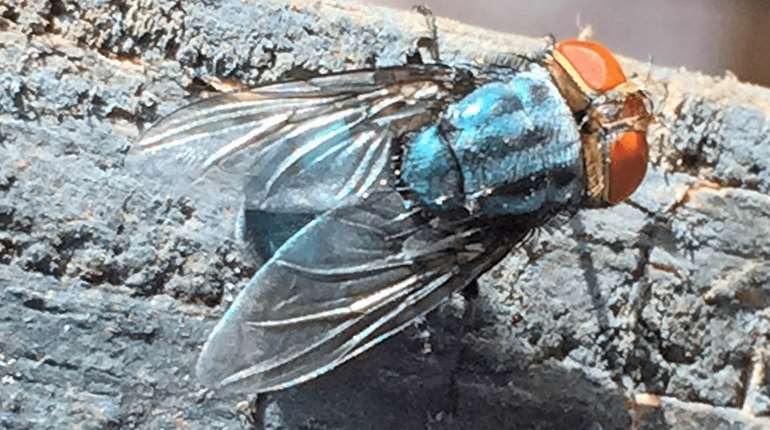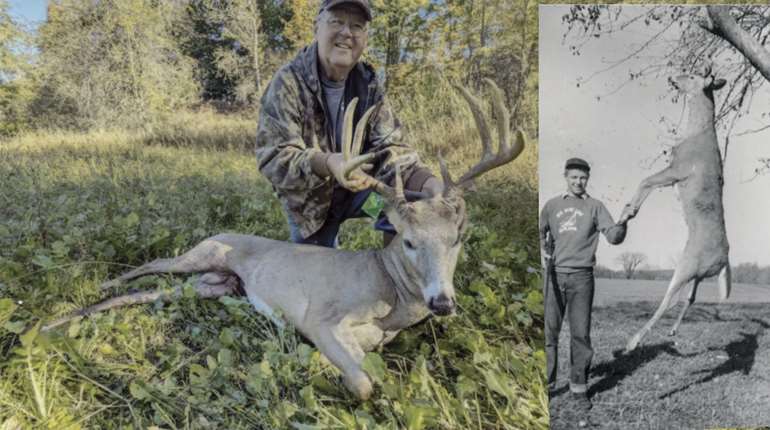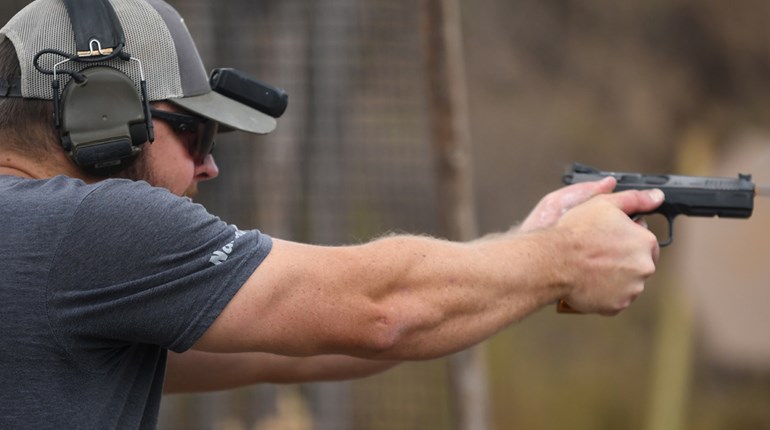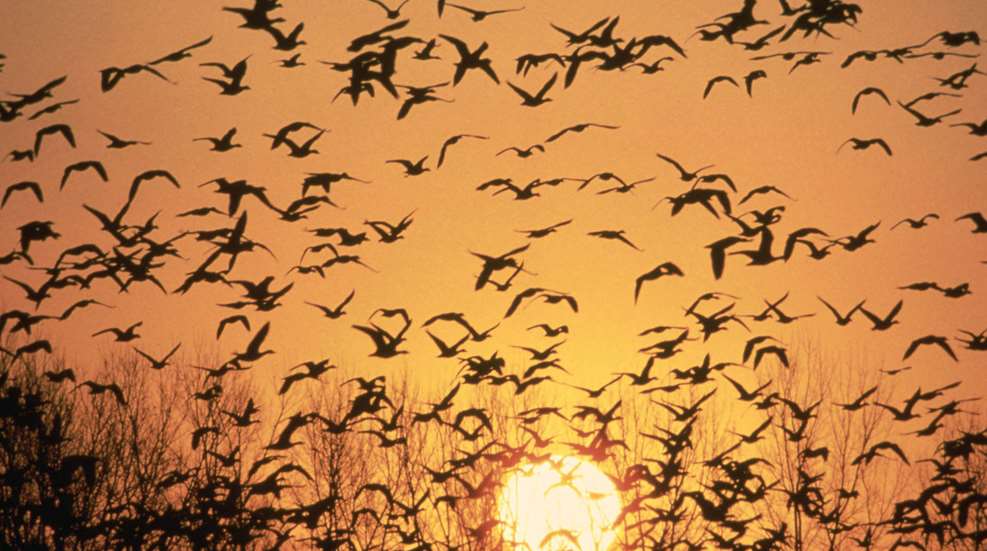
State agencies are issuing avian influenza (HPAI) precautions after detection of the virus in locations they manage. Although the chance of encountering a diseased animal—even less of catching or transmitting it—the safety steps are simple and procedures most readers likely already follow.
“HPAI is carried by dabbling duck species which only occasionally show signs of illness,” according to an Arizona Game and Fish (AZGFD) press release this month. “Canada geese, eagles and raptors appear to be the most susceptible to the virus, and infection in these species will often result in death. Infected birds may behave abnormally—swimming in circles, stumbling or be unable to fly. Domestic poultry are also susceptible to infection and will exhibit the same signs.”
AZGFD urged hunters and falconers to follow a few steps to help prevent the spread of the disease and stay safe. They include:
Hunters Should
- Only harvest waterfowl that look and act healthy.
- Field dress and prepare harvested birds outdoors, or in a well-ventilated area.
- Wear latex or nitrile gloves while handling and cleaning game.
- Double-bag feathers and all bird remains and dispose in a trash receptacle.
- Immediately cool harvested waterfowl and refrigerate or freeze as soon as possible.
- Do not eat, drink, smoke, or vape while handling carcasses.
- When finished handling harvested birds, wash hands and equipment thoroughly with soap and water.
- Bathe dogs with pet shampoo after hunting outings, and do not feed dogs raw meat, organs, or other tissues from harvested waterfowl.
- Cook all game meat to an internal temperature of 165 degrees Fahrenheit.
Falconers Should
- Consider not hunting waterfowl this season, and avoid hunting near wetlands or areas where migrating waterfowl congregate.
- Consider hunting only upland game birds and small mammals at this time.
- Do not feed any hunter-harvested birds to raptors.
- If a new bird is trapped, quarantine it for 10 to 14 days.
To Help Prevent HPAI Spread
- Report waterfowl deaths of three or more individuals to the AZGFD Wildlife Health Program [your local fish and game department if you live elsewhere].
- Sick carnivores (bobcat, foxes, skunks, raccoons) should also be reported.
Residents with Poultry Should Take Additional Steps, Including:
- Clean equipment, shoes and waders before returning home from hunting.
- Don’t let poultry have contact with migratory waterfowl.
- Secure feed bins from rodents and wild birds.
- Contact a veterinarian if any birds get sick or die.
HPAI Timeline
According to a Centers for Disease Control HPAI timeline, the disease was first identified in China. The 1996 discovery was made in domestic waterfowl and geographically confined, at first.
In 2003, when it struck Asia’s poultry industry hard, the virus quickly gained the “bird flu” nickname. Two years later HPAI it was detected in Europe, Africa and the Middle East and “genetic swapping” was detected, with multiple variants the result.
In late 2021 it arrived in Canada, affecting wildlife, livestock and poultry. Bird migrations south made it crossing into the United States unavoidable.
Human Death
On Jan. 6, 2025, officials in the Pelican State made a tragic announcement. “The Louisiana Department of Health [LDH] reports the patient who had been hospitalized with the first human case of highly pathogenic avian influenza (HPAI), or H5N1, in Louisiana and the U.S. has died,” it read. “The patient was over the age of 65 and was reported to have underlying medical conditions. The patient contracted H5N1 after exposure to a combination of a non-commercial backyard flock and wild birds.”
“LDH’s extensive public health investigation has identified no additional H5N1 cases nor evidence of person-to-person transmission. This patient remains the only human case of H5N1 in Louisiana.”
The LDH press release clearly stated the risk to the public is low, although it added steps non-hunting residents can take to reduce chances of exposure. They were:
- Do not touch sick or dead animals or their droppings and do not bring sick wild animals into your home.
- Keep your pets away from sick or dead animals and their feces.
- Do not eat uncooked or undercooked food. Cook poultry, eggs and other animal products to the proper temperature and prevent cross-contamination between raw and cooked food.
- Avoid uncooked food products such as unpasteurized raw milk or cheeses from animals that have a suspected or confirmed infection.
- If you work on poultry or dairy farms, talk to your provider about getting your seasonal flu vaccination. It will not prevent infection with avian influenza viruses, but it can reduce the risk of coinfection with avian and flu viruses.
- Report dead or sick birds or animals to the USDA toll-free at 1-866-536-7593 or the Louisiana Department of Agriculture and Forestry Diagnostic Lab at 318-927-3441.
Elsewhere
Late last year Idaho announced 3,000 birds died from the avian flu in the state’s Treasure Valley. Terming it a small outbreak, Mike McDonald, Idaho Fish and Game Regional Wildlife Manager, told Idaho 6 News, "3,000 in the big scheme of things, relative to light geese, won't really be a blip on the radar.”
Kentucky issued an alert last month stating, “On December 11, 2024, The Kentucky Department of Fish and Wildlife Resources announced the confirmation of highly pathogenic avian influenza (HPAI) in samples taken from snow geese at Sloughs Wildlife Management Area (WMA) in Henderson County. The University of Georgia’s Southeastern Cooperative Wildlife Disease Study Virology Laboratory confirmed the presence of HPAI after snow geese were found deceased on Dec. 4, 2024.”
A few days later the Hawkeye State issued a bulletin and advised hunters to adhere to safety steps issued by the U.S. Department of Agriculture. “The Iowa Department of Natural Resources (DNR) and its federal partners have been monitoring for the presence of highly pathogenic avian influenza (HPAI) in Iowa’s wild birds since early 2022,” according to the press release. “After nearly a year without detections in sick or dead birds, Iowa has seen a sharp jump in affected waterfowl across the state mostly, north of Interstate 80 since early December, spurred on by the stress of migration and the severe cold.”
HPAI has also been reported in Delaware and Indiana, and other states this winter.












